Bands in Parks : 100 years of entertaining the Brisbane public
By Simon Miller, Library Technician, State Library of Queensland | 23 August 2016
Sunday 28 August 2016 will see a special concert presented by the Brisbane City Council and the Brisbane Metropolitan Bands Association celebrating a century of the Brisbane Bands in Parks program. The concert will feature three bands, each with more than 100 years service to the Brisbane listening public, as well as the power of massed pipes and drums.
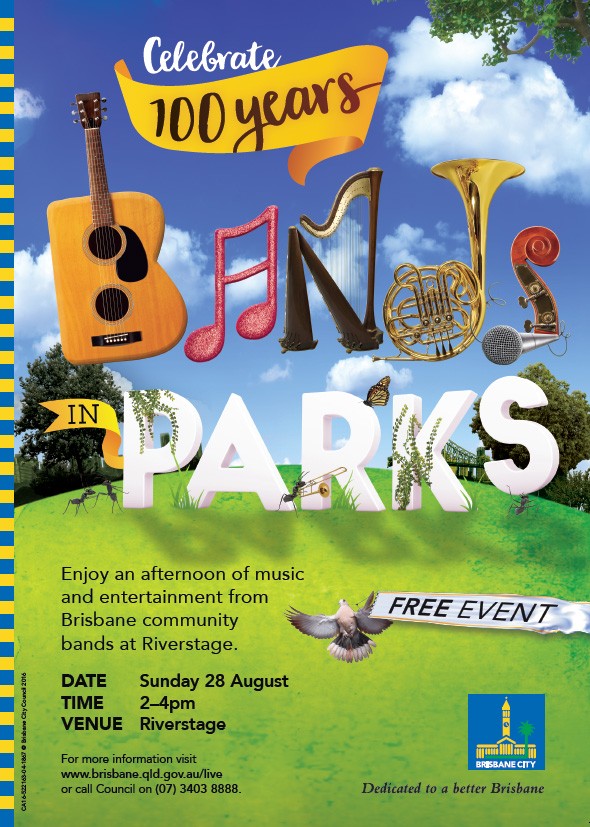
The Brisbane public had been treated to band music in the Botanic Gardens and other public parts from as early as 1857 when the Brisbane Band consisting of four professional German musicians put on a series of concerts, however, 1916 marked something of a landmark in the organised presentation of band music by Brisbane's best amateur bands in the city's parks and gardens. The 24th of March 1916 was the date of the first annual dinner of the Queensland Band Association and the announcement of the adjudication of a contest to determine which bands would be allowed to present concerts in the Botanic Gardens. This contest was an attempt to resolve an ongoing dispute among the bands over access to the Gardens. The Brisbane Municipal Concert Band had for some years had an agreement with the Queensland Department of Agriculture, which had control of the Botanic Gardens, to present a weekly series of concerts which had become very popular and which raised valuable capital for the band through a collection taken at the gates. Naturally Brisbane's other bands wanted some of this action and petitioned the Minister for Agriculture for access to the Gardens.
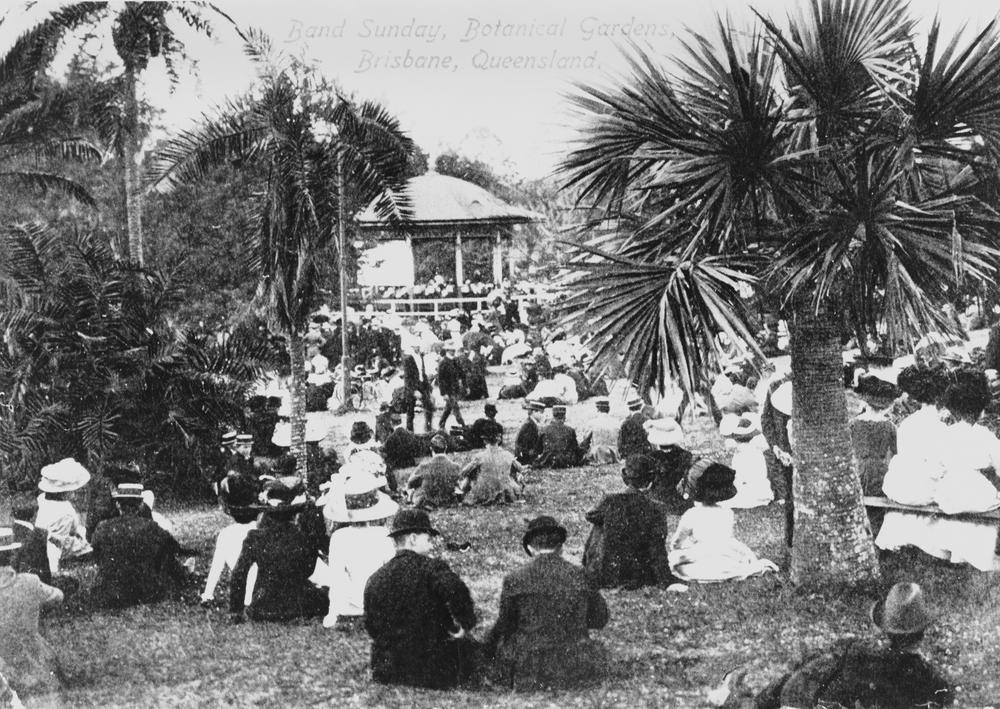
Band Sunday at Botanical Gardens, Brisbane, ca. 1911
In 1915, after a change of Government and the installation of new Minister, William Lennon, the agreement with the Municipal Concert Band was cancelled and concerts in the Botanical Gardens were made available to seven or eight bands on a schedule drawn up by the Queensland Band Association. It seems that some of these bands produced concerts of questionable quality and a series of letters to the editors of the Brisbane newspapers lamented the poor quality of the concerts and called for the Gardens concerts to be limited to the better quality bands.
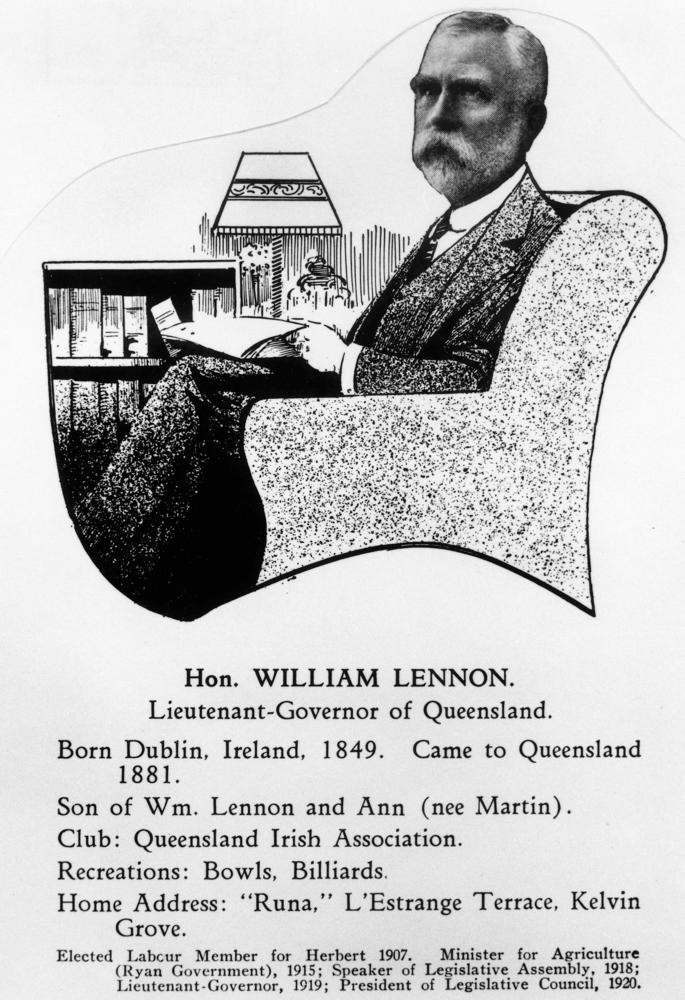
The Hon. William Lennon, Minister for Agriculture in 1915
This letter published in the Brisbane Courier in December 1915 from "Musician" sparked a flurry of responses to its scathing criticism of the quality of the concerts.
Many a time have I journeyed to the Gardens and heard a discordant programme of very second class music. Visitors to our city have often remarked on the low standard of music which is heard in our most central park. Then again bands are seemingly so fond of their second class selections that they force them on the public Sunday after Sunday. Sunday concerts used to be advertised as "sacred," this does not infer that nothing but sacred music is played; a good waltz or tone poem is beautiful, and acceptable at any time; but "Ragtime," played in discords at that, is far from acceptable. The majority of the bands performing in the Gardens are fearfully out of tune, others attempt pieces which they cannot play and many seem to think that noise is music.
The results of the contest intended to resolve the issue of the Botanic Gardens concerts were announced at the Queensland Band Association dinner. First though there were a number of toasts acknowledging the war effort, as reported in the Brisbane Courier.
The first annual dinner of the Queensland Band Association was held in Johnson's Cafe last evening. Mr. W. A. Davies (president) occupied the chair, and there was a large attendance. After the loyal toast had been musically honoured Mr. J. H. Nicoll proposed "Our Allies." During the past two weeks the Allies had done great work, and he was confident they would come out on top. (Applause.) Mr. J. Martin (Ipswich) proposed "Our Boys at the Front." Australia, he said, had sent a large number of men to the war zone, and amongst, them was a large quota of bandsmen. They had done their duty along with the rest. He hoped that the war would soon end, and that the bandsmen would all return safely.
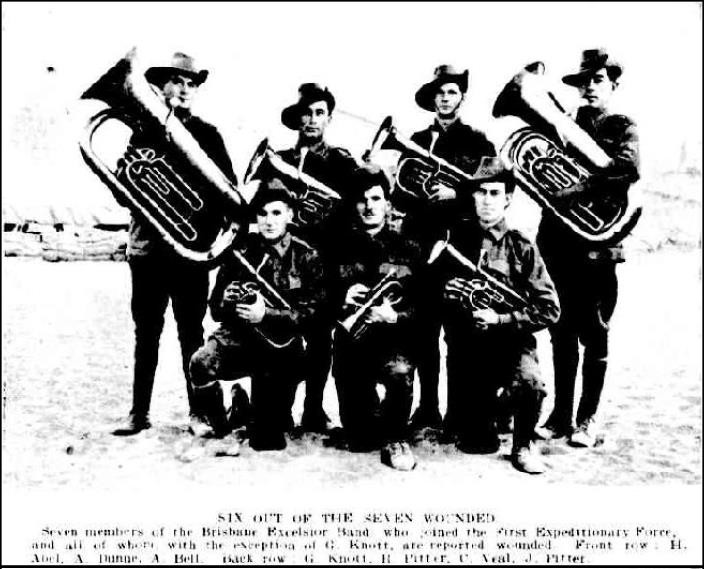
Seven bandsmen from the Brisbane Excelsior Band enlisted together
The bands were not immune from the general loss of young men to the war. We know something of the toll this took on the strength of the bands from a story reported in the press about seven members of the Brisbane Excelsior Band who enlisted together.
After the adjudicators report, which lists many of the same issues that concern contest adjudicators today, the four bands that had secured positions in the Gardens schedule were announced. The Brisbane Municipal Concert Band, the Brisbane Excelsior Band and the Brisbane Federal Band were all successful and these bands, still going strong 100 years later, will participate in the centenary concert. The fourth, the Brisbane Tramways Band, not surprisingly, went the way of the tramways themselves and has since been disbanded.
The Brisbane Municipal Concert Band was formed in 1903 as the Valley Concert Band and unusually for the time when brass bands were the norm, always included woodwinds in its lineup. In the early days the woodwinds would be dropped for contesting purposes and the brass strengthened. Conductor Ebenezer Jackson took over the band in 1908 and led them for the next 45 years. The Municipal Concert Band had taken the initiative in organizing concerts in the Botanic Gardens and were recognized as the top band in Brisbane at the time.
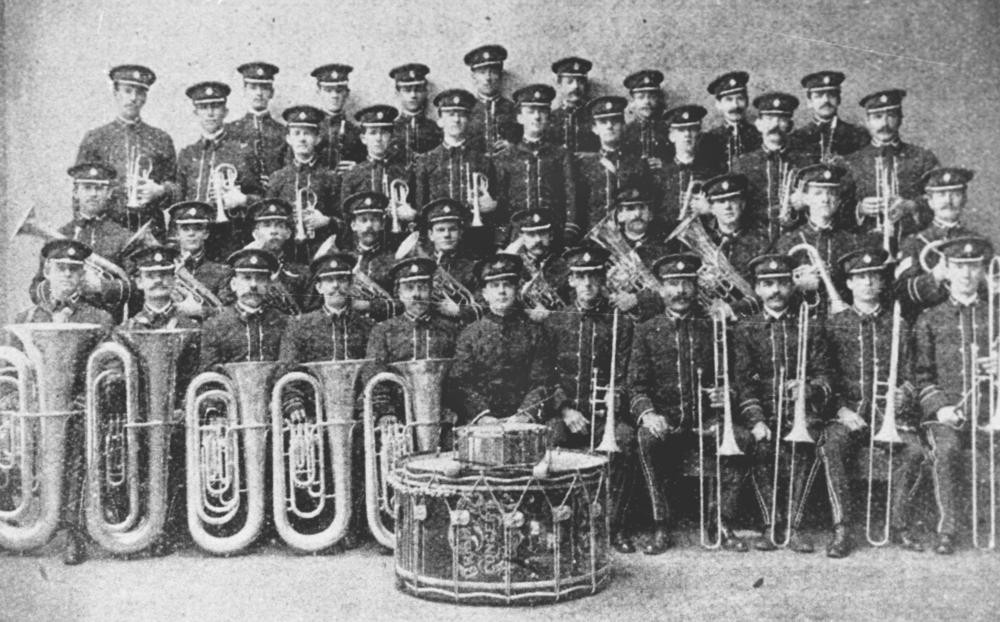
The Brisbane Excelsior Band was established in 1912 from members of Bloomfield's Military Band which was dissolved due to the illness of the conductor, together with some former Gympie bandsmen who were living in Brisbane. They may also have gained members from the Tramways band which was disbanded as a result of the dispute between the Managing Director of the tramways Joseph "Boss" Badger and the unions which led to the general strike of 1912, although a Tramways Band had been reestablished by 1914, then sometimes referred to as the Brisbane Tramways Employees' Association Band. The Brisbane Excelsior Band was formed primarily for the purpose of contesting at which they have achieved great success over the ensuing century. Brisbane Excelsior are the current reigning A-grade Brass Band champions of Australia.
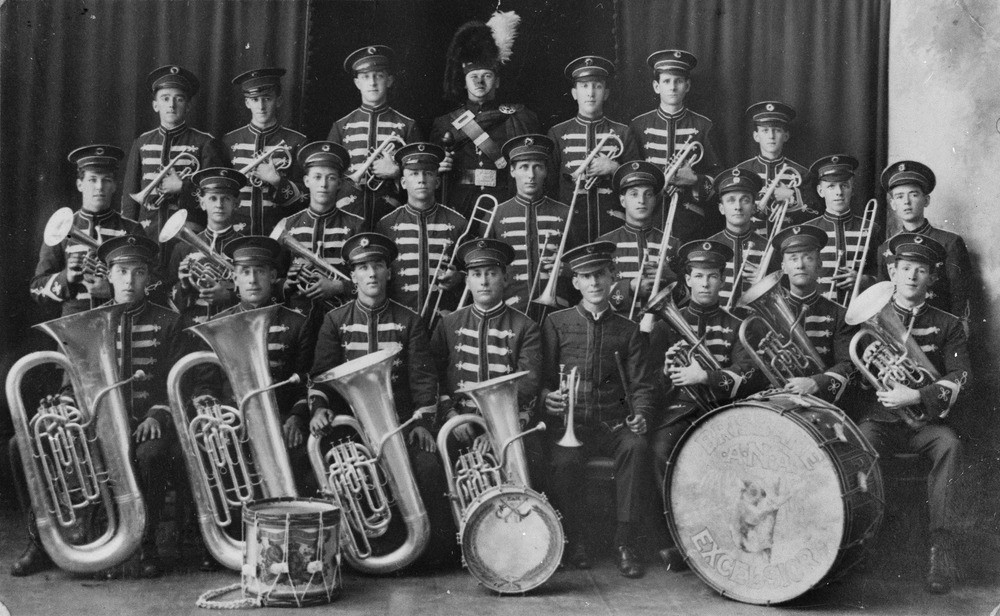
Excelsior Band in Brisbane, Queensland, 1935
The Brisbane Federal Band was also formed in 1912, evolving from a small band attached to the Baptist Church in Red Hill. In 1920 the band relocated to South Brisbane and the name of the band was changed to South Brisbane Federal Band which is the name the band goes by today although they are more familiarly know as "The Feds". (I should reveal that I am currently a member of this band in the position of 1st tenor horn.) All three of these long established bands will perform at the centenary concert and combine for the grand finale.
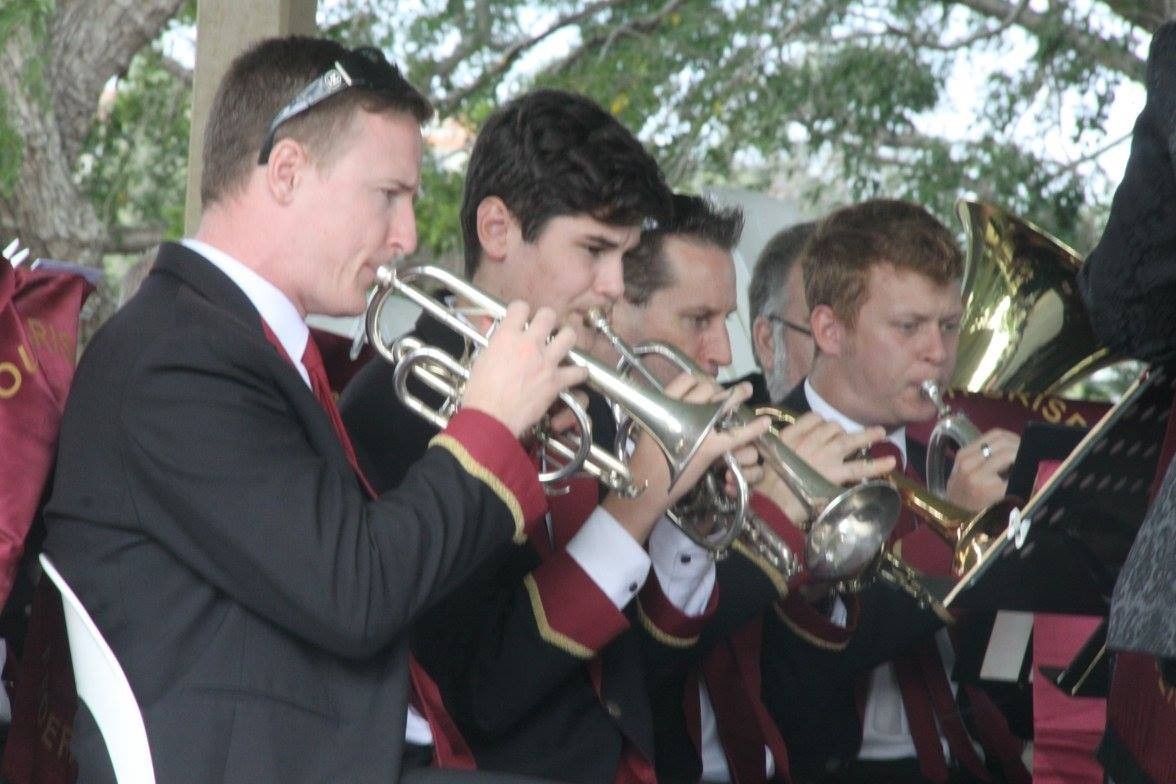
South Brisbane Federal Band at New Farm Park, April 2016
The contest result announced in 1916 was sadly not the end of the controversy. In 1917 the four winning bands responded to moves from the Band Association to open up the Gardens to several more bands by forming a breakaway organisation, amidst claims of vote rigging in the Q.B.A. as this letter to the Daily Mail reveals.
Sir, — For the past six months the night performance in the Botanic Gardens has been confined to four bands affiliated with the Queensland Band Association. This system, which was adopted at the suggestion of the Minister for Agriculture, worked very well up to the end of last year. It then became known that the Queensland Band Association, which is ruled by the majority vote of the lower-grade bands, contemplated adding to the number. The four "in", bands took a definite stand against any such action, and at a special meeting of the bands concerned, framed a motion embodying the four band principle, and providing for a half-yearly contest, at which, all the bands would be put in the melting pot, and the successful four carry on for the next six months. The metropolitan committee of the Queensland Band Association turned down the four-band principle, and did it in a very shady fashion. As there were only three "out" bands, which were going concerns, the delegates of a band which has been defunct for over six months, and which were unfinancial according to the rules of the Q.B.A., were allowed, on the chairman's ruling, to vote. The result was four against four, and the chairman's vote being cast with the low-graders as invariably happens, the position was turned against the "top-graders."
The association having meanwhile decided on admitting two more bands to the Botanic Gardens, making six in all, a special meeting of the four aggrieved bands was called, and a decision immediately arrived at to break away from the Q.B.A. This has now been done, the four bands resigning in a body. At the same meeting a new association was formed, to be called the Metropolitan Band Association; officers were elected, and a committee formed to draw up the constitution and rules. It is hoped that under the new association, the leading bands of the city will be able to have a controlling voice in their own affairs, which they have not had a chance of getting in the QB.A.
This was the genesis of the Brisbane Metropolitan Bands Association which, nearly 100 years later, functions in cooperation with the Brisbane City Council to run the Bands in Parks program. This program continues to entertain hundreds in Brisbane's parks on most Sundays of the year. The Metropolitan Bands Association these days operates in harmony with the Queensland Band Association and the dissenting bands that formed the breakaway group have long since rejoined the QBA and the former conflicts are long forgotten, except in the pages of the newspapers of the day.
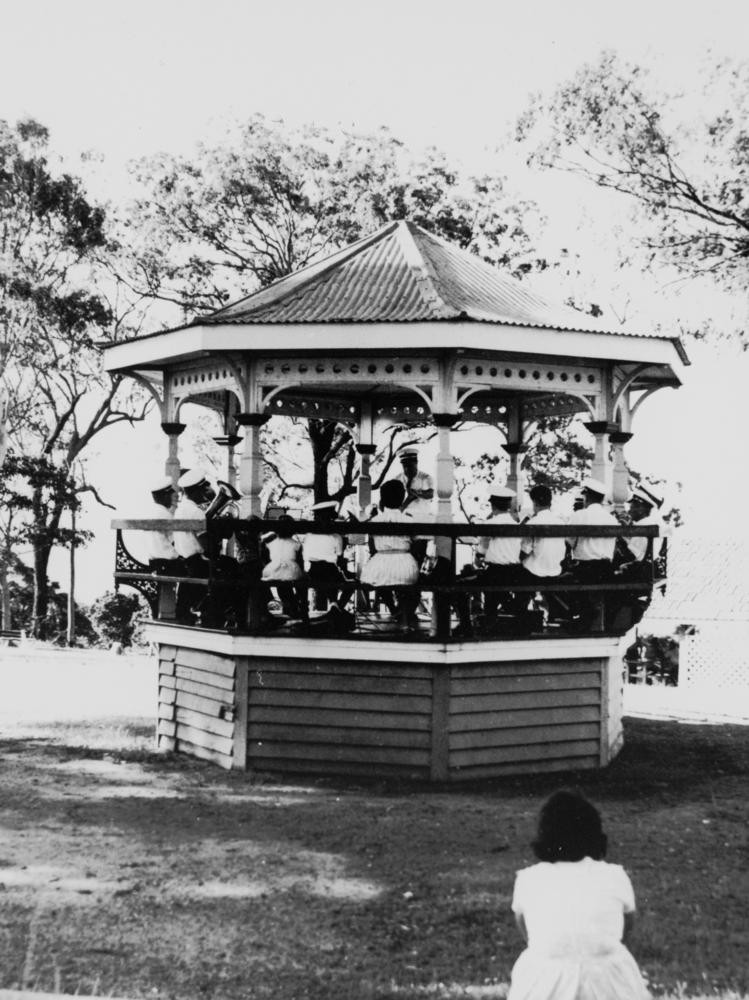
Comments
Your email address will not be published.
We welcome relevant, respectful comments.